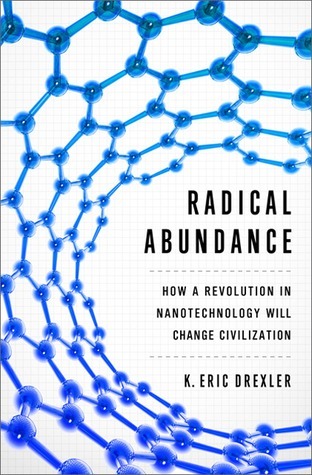
Radical Abundance: How a Revolution in Nanotechnology Will Change Civilization
Book Description
What if the key to an endless future lies at the atomic level? In "Radical Abundance," K. Eric Drexler unveils a groundbreaking revolution in nanotechnology that promises to redefine how we produce, consume, and understand resources. Imagine a world where food, energy, and materials are limitless, transforming society and sparking unprecedented innovation. This is not just a dream; it’s a glimpse into a possible tomorrow. But with such power comes perilous responsibilities. As humanity stands on the brink of this technological awakening, the question remains: Are we ready to wield the power of the molecular revolution?
Quick Book Summary
"Radical Abundance" by K. Eric Drexler introduces readers to a transformative vision of the future shaped by advances in molecular nanotechnology. Drexler argues that as the ability to manipulate matter at the atomic scale matures, it will unlock unparalleled potential for manufacturing, resource production, and innovation. The book delves into how this revolution could lead to an era of abundance, where goods are cheaply and efficiently produced, dramatically reducing the costs of energy, food, and materials. Drexler emphasizes both the promising opportunities and the significant societal and ethical challenges that such disruptive technology presents. He calls for a proactive and informed approach to developing and governing these capabilities to maximize benefits while minimizing risks, positioning nanotechnology as a pivotal force in defining humanity's next era.
Summary of Key Ideas
Table of Contents
Molecular Precision and its Revolutionary Potential
Drexler begins by explaining the science behind molecular nanotechnology, focusing on the unprecedented precision it offers. Unlike conventional manufacturing, which typically manipulates large numbers of atoms imprecisely, molecular engineering would enable direct control at the atomic scale. This capability could allow the design and creation of materials and products with ideal properties, tapping into the true potential of matter. By highlighting the distinction between current nanotechnologies and the coming wave of atomically precise manufacturing, Drexler sets the stage for a profound technological leap.
Redefining Manufacturing and Resource Abundance
The promise of radical abundance emerges from the implications of such precise control. Drexler explores scenarios where goods—from medical devices to food and clean energy—can be produced far more efficiently, cheaply, and sustainably. Scarcity could become a relic of the past as materials and products are constructed molecule by molecule, using abundant elements. This transformation would reshape economies, eliminate many environmental concerns, and democratize access to essential resources, making abundance a global reality instead of just an aspiration.
Societal and Ethical Implications of Nanotechnology
However, Drexler recognizes that such transformative power is double-edged. The societal and ethical implications loom large, from potential disruptions in labor markets to the concentration of technological power and new forms of risk. He cautions that unchecked development could lead to misuse of molecular machines, environmental hazards, or deepening inequalities. Engaging the public, policymakers, and scientific communities in transparent dialogue becomes essential to preemptively address these challenges and ensure responsible progress.
The Pathways and Challenges to Realization
Transitioning to this molecular future is not without substantial challenges. Drexler details the technical hurdles in achieving reliable atomically precise manufacturing and the need for interdisciplinary collaboration. He emphasizes the importance of robust research, regulatory frameworks, and global cooperation to prevent missteps that could hinder progress or initiate dangerous arms races. The pathways to realization depend on thoughtful investment and international commitment to both innovation and safety.
Guiding the Molecular Revolution Responsibly
In closing, Drexler argues that humanity stands at a crossroads: the choices made today will determine whether nanotechnology delivers a new era of radical abundance or usher in unforeseen dangers. He urges careful stewardship and shared responsibility to channel the molecular revolution toward positive and inclusive outcomes. By preparing society for both the promise and peril of this technology, Drexler envisions a future where science and ethics advance hand-in-hand, unlocking a civilization defined by unprecedented possibilities.
Download This Summary
Get a free PDF of this summary instantly — no email required.





